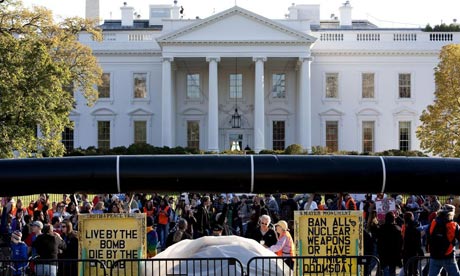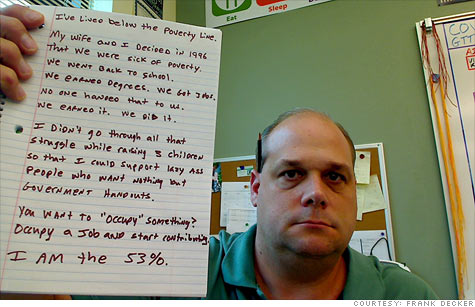MPC claims that this new technology, which is being developed and tested in China, is a cleaner way to burn coal. That may be true, but a "cleaner way to burn coal" is still very, very dirty. And with coal, CO2 is the least of our worries; secondary emissions like sulfur and mercury are much more dangerous.
The lignite needed to generate electricity will be mined in Kemper County, and "22,000 acres of prime forest land and small farms will have to be eliminated" in order to install and maintain this unnecessary power plant. Contamination of rivers and acidification are just a few of the environmental hazards associated with coal, and with a huge project, environmental degradation is unavoidable.
The lignite needed to generate electricity will be mined in Kemper County, and "22,000 acres of prime forest land and small farms will have to be eliminated" in order to install and maintain this unnecessary power plant. Contamination of rivers and acidification are just a few of the environmental hazards associated with coal, and with a huge project, environmental degradation is unavoidable.
This project is also economically devastating, and it will cost Mississippians billions of dollars in a time when families are already under a lot of financial pressure. The Mississippi Public Service Commission originally set a $2.4 billion cost cap, but MPC proposed a higher cap. I doubt you'll be shocked by the fact that MPC got its way, and they've already requested permission to charge a higher rate for electricity to finance the project before the plant is operational. The cost of electricity would increase by over 11%, and MPC has pointed out that increases of up to 45% might be necessary to secure full funding. The kicker? The people whose rates will go up aren't even the people using the electricity this new plant will generate, as Kemper County isn't in MPC's service area.
The company claims that the Kemper County coal plant represents a multi-billion dollar investment in our state, but in reality, it's just a redistribution of almost $3 billion from MPC's customers to MPC for an investment in something they don't need at all. Consumers will be forced to pay more for electricity. Only about $270 million of the project will be funded by the federal government's clean carbon initiative, and only because that funding was left over from a failed attempt to build a similar power plant in Florida. Moreover, MPC's biggest clients, including casinos and shipyards on the coast, are exempt from rate increases.
And what happens when prices go up? Basic economic theory tells us that when prices go up, demand goes down. Mississippi already has much more generation capacity than it needs, so increased costs will only translate to more waste, and as usage decreases, prices will have to increase even more to pay for the new plant, since future rate increases were based on current consumption levels.
MPC also claims that the project will create over 1,000 temporary jobs and around 260 permanent jobs, but a little skepticism is necessary, since companies usually mean "job transfer" when they say "job creation". Even if MPC is telling the truth, and 1,200 or so jobs are magically created, back-of-the-envelope math shows us that spending well over $2.2 million per new job may not be the most efficient use of money. If we only look at permanent jobs, that's a little over $11 million per worker. Those must be some highly trained engineers.
Finally, calling coal-powered electricity generation "clean" is a farce. You can't retrofit an old plant to gasify coal, so new plants have to be built. In 2011, spending a single dollar on new coal-powered generation capacity is stupid. The US Department of Energy estimates that by 2016 (when plants under construction now will be operational), the cost per megawatt hour of electricity generated from Kemper County power plant and similar facilities will be $136.2. Compared with nuclear ($113.9/MW hour), wind ($97/MW hour), geothermal ($101.7/MW hour), hydro ($86.4/MW hour) and biomass ($112.5/MW hour), it's mind-boggling to think that this project was ever considered a sound investment.
The failure of the Mississippi government to protect its citizens from both the hidden costs and the unavoidable dangers of this is just another testament to the corruption in our government and blatant disregard for our well-being. Wasteful spending, shameless corporate pandering and serious environmental threats make this an issue that Republicans and Democrats can - and should - jointly oppose.
And what happens when prices go up? Basic economic theory tells us that when prices go up, demand goes down. Mississippi already has much more generation capacity than it needs, so increased costs will only translate to more waste, and as usage decreases, prices will have to increase even more to pay for the new plant, since future rate increases were based on current consumption levels.
MPC also claims that the project will create over 1,000 temporary jobs and around 260 permanent jobs, but a little skepticism is necessary, since companies usually mean "job transfer" when they say "job creation". Even if MPC is telling the truth, and 1,200 or so jobs are magically created, back-of-the-envelope math shows us that spending well over $2.2 million per new job may not be the most efficient use of money. If we only look at permanent jobs, that's a little over $11 million per worker. Those must be some highly trained engineers.
Finally, calling coal-powered electricity generation "clean" is a farce. You can't retrofit an old plant to gasify coal, so new plants have to be built. In 2011, spending a single dollar on new coal-powered generation capacity is stupid. The US Department of Energy estimates that by 2016 (when plants under construction now will be operational), the cost per megawatt hour of electricity generated from Kemper County power plant and similar facilities will be $136.2. Compared with nuclear ($113.9/MW hour), wind ($97/MW hour), geothermal ($101.7/MW hour), hydro ($86.4/MW hour) and biomass ($112.5/MW hour), it's mind-boggling to think that this project was ever considered a sound investment.
The failure of the Mississippi government to protect its citizens from both the hidden costs and the unavoidable dangers of this is just another testament to the corruption in our government and blatant disregard for our well-being. Wasteful spending, shameless corporate pandering and serious environmental threats make this an issue that Republicans and Democrats can - and should - jointly oppose.

























